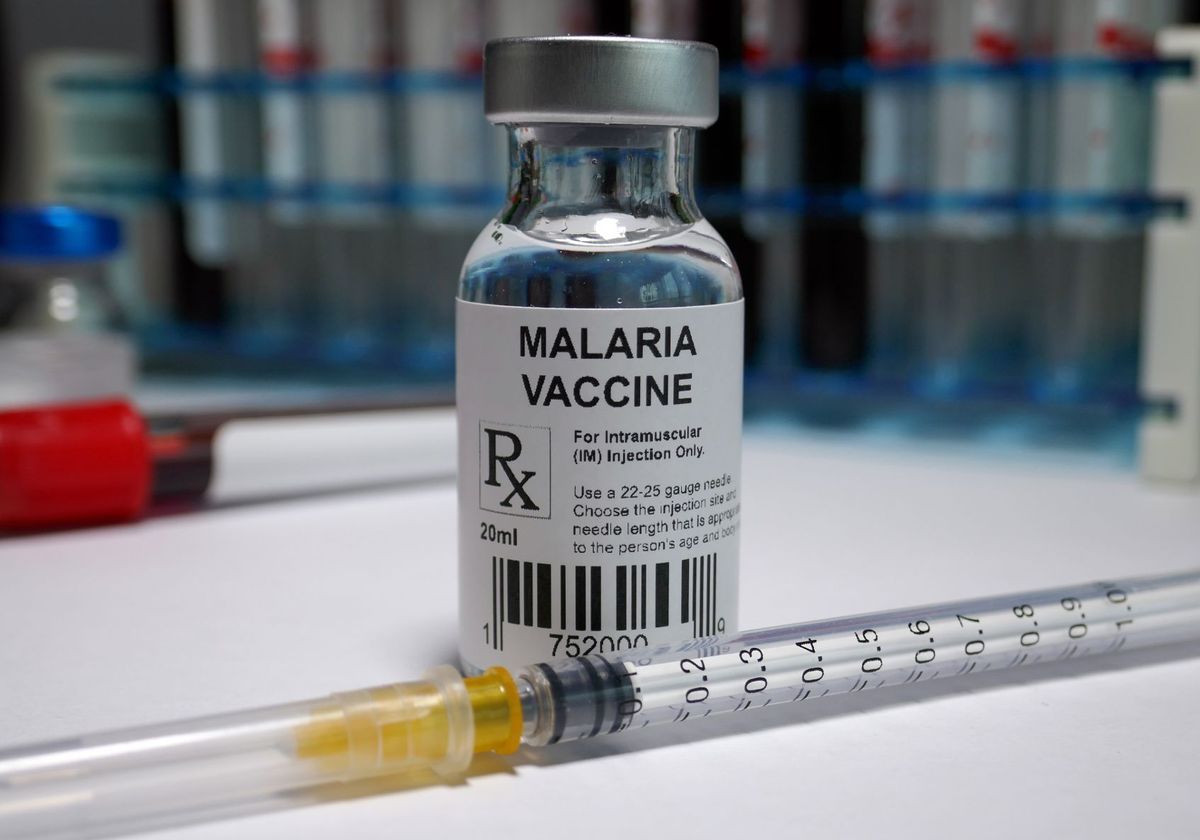Nigeria gets $9.2m Canadian grant to strengthen COVID-19 vaccination, health system
The World Health Organisation (WHO) in collaboration with the Federal Ministry of Health yesterday launched a $9, 261,920 Canada Global Initiative for Vaccine Equity (CanGIVE) grant to support COVID-19 vaccine delivery and distribution in Nigeria. The two year CanGIVE grant is from the Global Affairs Canada to WHO to support the scale up of COVID-19 […]

FILE PHOTO: Malaria vaccine
The World Health Organisation (WHO) in collaboration with the Federal Ministry of Health yesterday launched a $9, 261,920 Canada Global Initiative for Vaccine Equity (CanGIVE) grant to support COVID-19 vaccine delivery and distribution in Nigeria.
The two year CanGIVE grant is from the Global Affairs Canada to WHO to support the scale up of COVID-19 vaccine delivery amongst high priority risk groups and strengthen health systems in Nigeria.
Speaking during the ceremony in Abuja, the Canadian High Commissioner to Nigeria, Jamie Chrisoff, said the grant is another example of Canada’s historical institutional relationship with the WHO to support Nigeria in the critical work for preventing disease and protecting those most at risk.
He said Canada in 2022, launched CanGIVE- a global initiative of $317 million Canadian dollars to respond to country priorities for COVID-19 and build on Canada’s long-standing global commitment to support health systems
He said under CanGIVE, the WHO project will be implemented in seven countries, with Nigeria receiving the greatest share of $9 million Canadian Dollars.
“Nigeria was also amongst the first countries to receive COVID-19 vaccine doses from Canada in September of 2021, and am pleased to be able to continue Canada’s support to Nigeria with this latest project,” he said.
The WHO Country Representative to Nigeria, Dr. Walter Kazadi-Mulombo, said the grant would enable the WHO Nigeria country office provide technical support to strengthen health systems specially for data management and surveillance linked to the Transforming African Surveillance Systems (TASS) Flagship initiative, increase COVID-19 vaccine demand generation and uptake in an integrated mode with routine immunization and other Primary Health Care (PHC) services.
He said the country has made progress in the fight against COVID-19 but there is still more work to be done.
He said the WHO Director General’s declaration that COVID-19 is no longer a Public Health Emergency of International Concerns (PHEIC) does not mean COVID-19 is over as a global/national health threat.
While saying that people are still at risk of the infection as cases are still being reported in a number of countries, he said there was need “to continue protecting ourselves by completing the primary series of COVID-19 vaccination and for those who have completed to continue with the booster dose schedule”.
He said the CanGIVE Grant has come at the right time to help improve coverage and uptake of the vaccine among the priority populations in line with the current WHO SAGE roadmap on uses of COVID-19 vaccines.
The Executive Director/CEO of the National Primary Health Care Development Agency (NPHCDA) Dr Faisal Shuaib, said the Nigerian COVID-19 vaccination program which was launched on March 5, 2021, has reached over 75% of the target population of individuals aged 18 and above with at least one dose of the COVID-19 vaccine.
He said the grant targets states with lower performance and aims to reach high-priority populations.
He said the states targeted for implementation include Ondo, Rivers, Kogi, Delta, Ebonyi, Lagos, Akwa-Ibom, Bayelsa, Benue, Ogun, Katsina, Taraba, Anambra, Kebbi, and Edo.
He said, “The grant, to be implemented through the World Health Organization (WHO), will also contribute to strengthening the health system, addressing service delivery inequities and gender disparities at the sub-national level. We are confident that WHO will continue to support Nigeria’s efforts to enhance vaccine delivery, distribution, and public confidence, as well as generate demand.”
